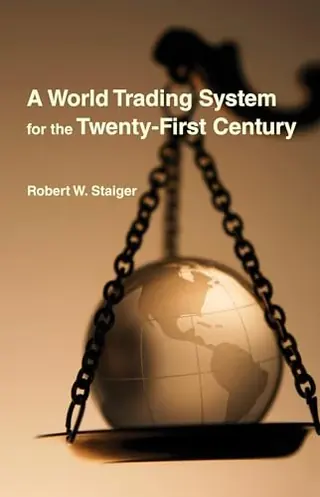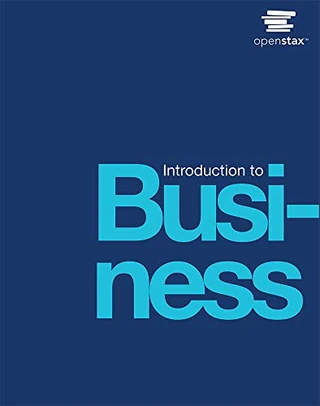This OpenStax resource aligns to introductory courses in Organizational Behavior. The text presents the theory, concepts, and applications with particular emphasis on the impact that individuals and groups can have on organizational performance and culture. An array of recurring features engages students in entrepreneurial thinking, managing change, using tools/technology, and responsible management.
Conditions of Use
![]() This book is licensed under a Creative Commons License (CC BY). You can download the ebook Organizational Behavior by OpenStax for free.
This book is licensed under a Creative Commons License (CC BY). You can download the ebook Organizational Behavior by OpenStax for free.
- Title
- Organizational Behavior by OpenStax
- Publisher
- OpenStax
- Author(s)
- OpenStax
- Published
- 2022-04-07
- Edition
- 1
- Format
- eBook (pdf, epub, mobi)
- Pages
- 704
- Language
- English
- ISBN-10
- 7261509876
- ISBN-13
- 9787261509879
- License
- CC BY
- Book Homepage
- Free eBook, Errata, Code, Solutions, etc.
Chapter 1 Management and Organizational Behavior Introduction 1.1 The Nature of Work 1.2 The Changing Workplace 1.3 The Nature of Management 1.4 A Model of Organizational Behavior and Management Key Terms Summary of Learning Outcomes Chapter Review Questions Critical Thinking Case Chapter 2 Individual and Cultural Differences Introduction 2.1 Individual and Cultural Factors in Employee Performance 2.2 Employee Abilities and Skills 2.3 Personality: An Introduction 2.4 Personality and Work Behavior 2.5 Personality and Organization: A Basic Conflict? 2.6 Personal Values and Ethics 2.7 Cultural Differences Key Terms Summary of Learning Outcomes Chapter Review Questions Management Skills Application Exercises Managerial Decision Exercises Critical Thinking Case Chapter 3 Perception and Job Attitudes Introduction 3.1 The Perceptual Process 3.2 Barriers to Accurate Social Perception 3.3 Attributions: Interpreting the Causes of Behavior 3.4 Attitudes and Behavior 3.5 Work-Related Attitudes Key Terms Summary of Learning Outcomes Chapter Review Questions Management Skills Application Exercises Managerial Decision Exercises Critical Thinking Case Chapter 4 Learning and Reinforcement Introduction 4.1 Basic Models of Learning 4.2 Reinforcement and Behavioral Change 4.3 Behavior Modification in Organizations 4.4 Behavioral Self-Management Key Terms Summary of Learning Outcomes Chapter Review Questions Management Skills Application Exercises Managerial Decision Exercises Critical Thinking Case Chapter 5 Diversity in Organizations Introduction 5.1 An Introduction to Workplace Diversity 5.2 Diversity and the Workforce 5.3 Diversity and Its Impact on Companies 5.4 Challenges of Diversity 5.5 Key Diversity Theories 5.6 Benefits and Challenges of Workplace Diversity 5.7 Recommendations for Managing Diversity Key Terms Summary of Learning Outcomes Chapter Review Questions Management Skills Application Exercises Managerial Decision Exercises Critical Thinking Case Chapter 6 Perception and Managerial Decision Making Introduction 6.1 Overview of Managerial Decision-Making 6.2 How the Brain Processes Information to Make Decisions: Reflective and Reactive Systems 6.3 Programmed and Nonprogrammed Decisions 6.4 Barriers to Effective Decision-Making 6.5 Improving the Quality of Decision-Making 6.6 Group Decision-Making Key Terms Summary of Learning Outcomes Chapter Review Questions Management Skills Application Exercises Managerial Decision Exercises Critical Thinking Case Chapter 7 Work Motivation for Performance Introduction 7.1 Motivation: Direction and Intensity 7.2 Content Theories of Motivation 7.3 Process Theories of Motivation 7.4 Recent Research on Motivation Theories Key Terms Summary of Learning Outcomes Chapter Review Questions Management Skills Application Exercises Managerial Decision Exercises Critical Thinking Case Chapter 8 Performance Appraisal and Rewards Introduction 8.1 Performance Appraisal Systems 8.2 Techniques of Performance Appraisal 8.3 Feedback 8.4 Reward Systems in Organizations 8.5 Individual and Group Incentive Plans Key Terms Summary of Learning Outcomes Chapter Review Questions Management Skills Application Exercises Managerial Decision Exercises Critical Thinking Case Chapter 9 Group and Intergroup Relations Introduction 9.1 Work Groups: Basic Considerations 9.2 Work Group Structure 9.3 Managing Effective Work Groups 9.4 Intergroup Behavior and Performance Key Terms Summary of Learning Outcomes Chapter Review Questions Management Skills Application Exercises Managerial Decision Exercises Critical Thinking Case Chapter 10 Understanding and Managing Work Teams Introduction 10.1 Teamwork in the Workplace 10.2 Team Development Over Time 10.3 Things to Consider When Managing Teams 10.4 Opportunities and Challenges to Team Building 10.5 Team Diversity 10.6 Multicultural Teams Key Terms Summary of Learning Outcomes Chapter Review Questions Management Skills Application Exercises Managerial Decision Exercises Critical Thinking Case Chapter 11 Communication Introduction 11.1 The Process of Managerial Communication 11.2 Types of Communications in Organizations 11.3 Factors Affecting Communications and the Roles of Managers 11.4 Managerial Communication and Corporate Reputation 11.5 The Major Channels of Management Communication Are Talking, Listening, Reading, and Writing Key Terms Summary of Learning Outcomes Chapter Review Questions Management Skills Application Exercises Managerial Decision Exercises Critical Thinking Case Chapter 12 Leadership Introduction 12.1 The Nature of Leadership 12.2 The Leadership Process 12.3 Leader Emergence 12.4 The Trait Approach to Leadership 12.5 Behavioral Approaches to Leadership 12.6 Situational (Contingency) Approaches to Leadership 12.7 Substitutes for and Neutralizers of Leadership 12.8 Transformational, Visionary, and Charismatic Leadership 12.9 Leadership Needs in the 21st Century Key Terms Summary of Learning Outcomes Chapter Review Questions Management Skills Application Exercises Managerial Decision Exercises Critical Thinking Case Chapter 13 Organizational Power and Politics Introduction 13.1 Power in Interpersonal Relations 13.2 Uses of Power 13.3 Political Behavior in Organizations 13.4 Limiting the Influence of Political Behavior Key Terms Summary of Learning Outcomes Chapter Review Questions Management Skills Application Exercises Managerial Decision Exercises Critical Thinking Case Chapter 14 Conflict and Negotiations Introduction 14.1 Conflict in Organizations: Basic Considerations 14.2 Causes of Conflict in Organizations 14.3 Resolving Conflict in Organizations 14.4 Negotiation Behavior Key Terms Summary of Learning Outcomes Chapter Review Questions Management Skills Application Exercises Managerial Decision Exercises Critical Thinking Case Chapter 15 External and Internal Organizational Environments and Corporate Culture Introduction 15.1 The Organization's External Environment 15.2 External Environments and Industries 15.3 Organizational Designs and Structures 15.4 The Internal Organization and External Environments 15.5 Corporate Cultures 15.6 Organizing for Change in the 21st Century Key Terms Summary of Learning Outcomes Chapter Review Questions Management Skills Application Exercises Managerial Decision Exercises Critical Thinking Case Chapter 16 Organizational Structure and Change Introduction 16.1 Organizational Structures and Design 16.2 Organizational Change 16.3 Managing Change Key Terms Summary of Learning Outcomes Chapter Review Questions Management Skills Application Exercises Managerial Decision Exercises Critical Thinking Case Chapter 17 Human Resource Management Introduction 17.1 An Introduction to Human Resource Management 17.2 Human Resource Management and Compliance 17.3 Performance Management 17.4 Influencing Employee Performance and Motivation 17.5 Building an Organization for the Future 17.6 Talent Development and Succession Planning Key Terms Summary of Learning Outcomes Chapter Review Questions Management Skills Application Exercises Managerial Decision Exercises Critical Thinking Case Chapter 18 Stress and Well Being Introduction 18.1 Problems of Work Adjustment 18.2 Organizational Influences on Stress 18.3 Buffering Effects of Work related Stress 18.4 Coping with Work related Stress Key Terms Summary of Learning Outcomes Chapter Review Questions Management Skills Application Exercises Critical Thinking Case Chapter 19 Entrepreneurship Introduction 19.1 Overview of Entrepreneurship 19.2 Characteristics of Successful Entrepreneurs 19.3 Business Model Canvas 19.4 New Venture Financing 19.5 Design Thinking 19.6 Optimal Support for Entrepreneurship Key Terms Summary of Learning Outcomes Chapter Review Questions Management Skills Application Exercises Managerial Decision Exercises Critical Thinking Case Appendix A Scientific Method in Organizational Research Appendix B Scoring Keys for Self-Assessment Exercises References Index
Related Books








